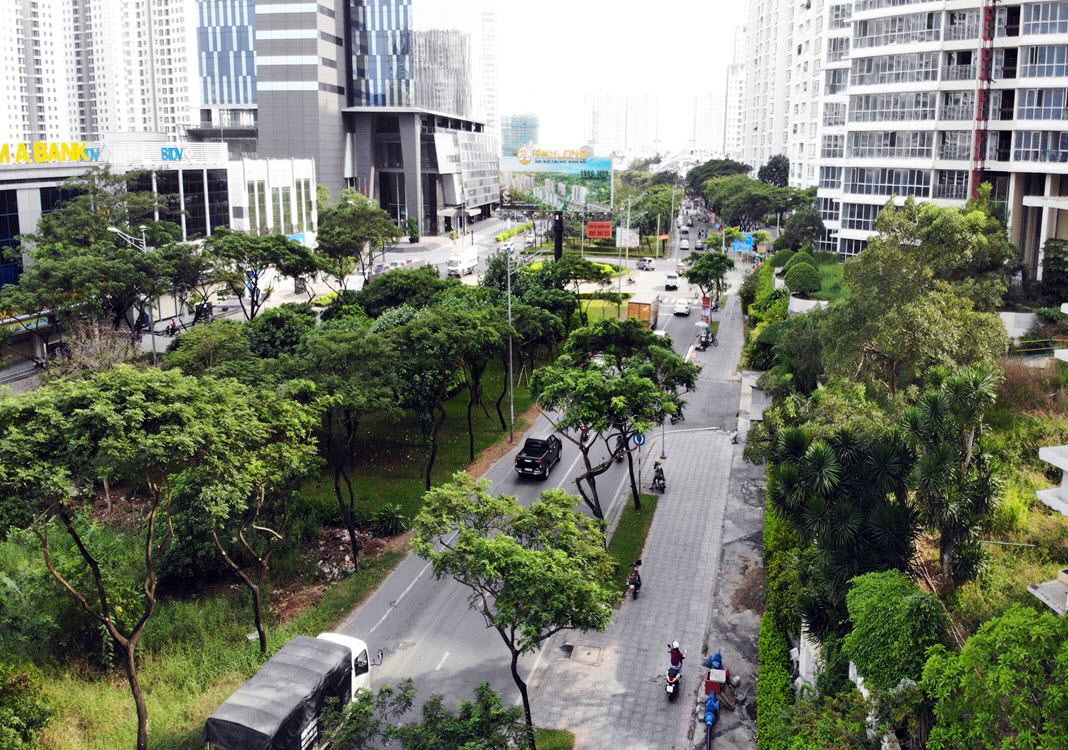Last year, as the real estate market in Vietnam was hit hard by Covid-19, the Government issued a host of new policies to prop up realty enterprises. The legal guidance is expected to continue positively affecting the market in the medium term and long term.
Contrary to initial forecast, Vietnam’s realty market in general was more resilient than thought to the hard times in 2020 caused by Covid-19. Obviously, there was a stark contrast among the segments of realty products. While the segments of apartments, land plots in some localities and industrial real estate still posted growth, the resort real estate sector fared badly last year.
In the apartment segment, prices increased relatively strongly in some locations. For instance, Binh Duong Province offered 8,289 apartment units, equivalent to the number in HCMC. The successful rate of apartment transactions in Binh Duong was also impressive at over 90%, even higher than in HCMC (82%) or Hanoi (69%). The prices of apartments in Binh Duong in some cases soared to VND40-45 million per square meter.
Likewise, the prices of apartments also picked up in HCMC last year. Statistics obtained from CBRE show that the average price in the entire market last year rose by 5% from the previous year. The high-end segment posted a 3% increase while the medium quality segment increased by 5%. Compared with 2018, the prices of apartments in HCMC rose by 15-20% last year. Some projects in the eastern part of the city saw their prices jumping by 39% in two years.
In the backdrop of a shortage of land for new estate projects in HCMC and Hanoi, big names in the real estate industry have joined the races in the provinces to develop “mega projects” on swathes of land stretching over hundreds of hectares.
In the segment of industrial estate, last year also witnessed a swift switch of some supply chains of electronics and light industrial products from China to Vietnam. The shift has considerably raised local land rents. According to CBRE, the common land rent in industrial hubs in both the north and the south has surged by 50-100% year-on-year.
The land shortage can be clearly felt as existing industrial parks are being filled by new projects and new land funds are hindered because of legal bottlenecks. Mergers and acquisitions (M&A) activities in this industry have also seen impressive transactions. For instance, Australia’s Logos Property invested US$350 million in a logistics real estate joint venture aimed to enter the local market. Another remarkable deal is in the pipeline between Asian warehouse giant GLP and SEA Logistic Partners Vietnam. In addition, Mirae Asset Daewoo and Naver Corporation, both from South Korea, have invested US$37 million in a warehousing facility at LogisValley, a logistics hub in Bac Ninh Province.
But the picture was not rosy at all for the segment of resort estate in 2020. The Covid-19 pandemic sent this segment into a tailspin and shattered all business plans of players in the field. The occupancy rate of resorts fell to 25%. Meanwhile, the condotel market was almost frozen.

Hopes from more liberal legal framework
To stimulate the lackluster real estate market enfeebled by Covid-19, the Government last year issued a slew of policies in support of realty enterprises. Experts in the field have deemed that these policies will continue to positively affect the estate market in the medium term and long term.
First, Decree No. 25 promulgated in February 2020 stipulates that land will be assigned to the successful bidder immediately after land compensation and resettlement are finished. In April 2020, the Government issued Decree No. 41 to extend the time for tax payments applicable to land developers. In July 2020, Circular No. 21 by the Ministry of Construction set the minimum area of an apartment at 25 square meters, giving an impetus to the apartment market. At the end of the year, the Government adopted Resolution No. 164 on clearing legal bottlenecks of estate projects. Particularly, on December 18, 2020, in an unexpected move, the Government issued Decree No. 148/2020/ND/CP on the revision and supplement of some articles in the decrees detailing the implementation of the Land Law. Of these, the most crucial point is the supplement of Article 14a which stipulates the assignment and leasing of small plots of land managed by the State. The new stipulation is to remove a snag that relates to public land locked in estate projects as this is one of the reasons hindering many projects under construction.
According to Bao Viet Securities Company, although what really happens depends on the details of every projects—such as total area, terrain of the swathe of public land and review on the location—Decree No. 148 will exert a positive mood on estate stocks listed on the stock market, which is expected to enable primary capital investment to flow again in 2021. Estate firms currently having vast funds of land in HCMC and Hanoi will be the first to benefit from the decree.
In addition, the revisions of the Construction Law and the Investment Law effective as of January 1, 2021 will solve the problems currently plaguing the approval process for residential projects and cut the licensing time. Moreover, the revised Land Law, to be enacted this year and effective on January 1, 2022, will help the apartment market become as lucrative as it was in 2017-2018.
Aside from a better legal framework, the cash flow moving toward the real estate channel beside others—such as the stock market, the gold market and the bond market—may be of great help for the realty industry this year.
By Dang Linh











